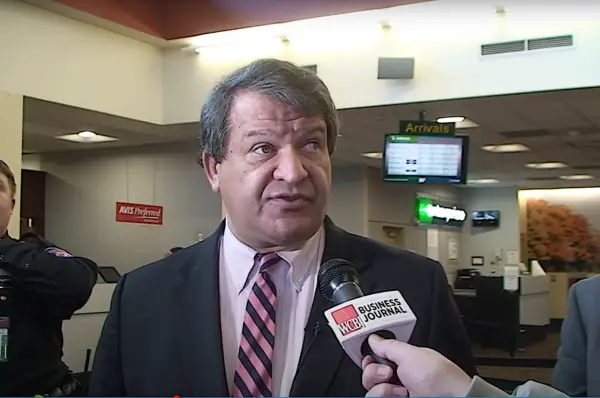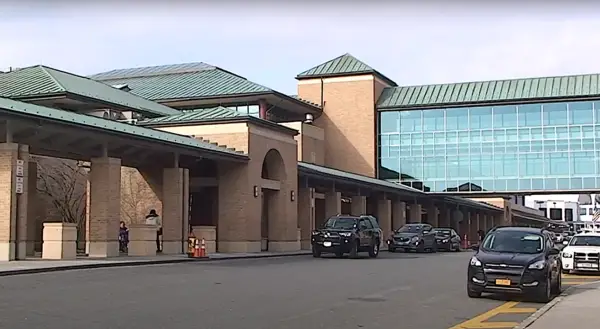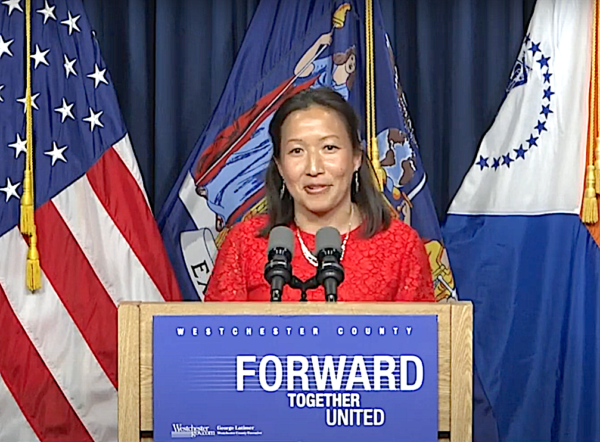Westchester plans to begin airport master plan update
Westchester County plans to begin the process of updating the master plan for the county airport in about 60 days, according to County Executive George Latimer. The updating process had been put on hold when the Covid pandemic hit.
“That gives us the chance to discuss, conceptually, all across the county, what we want to see Westchester Airport be, what kind of policies will help us get to that level,” Latimer said. “When I came into office four years ago we were on the cusp of a proposal to privatize the airport, turn it over to private management. We rejected that. We kept it in public hands so that we would be able to shape its future and not have its future shaped by a private entity who would have, perhaps, different priorities.”

Latimer said the belief was that the airport should be one that could be used productively as part of an economic development strategy to maintain existing businesses in the county and also attract new business. However, that had to take place without airport expansion.
“We have some protections under a terminal use agreement that was put into place back in the 198i0s that limits the amount of gates on the commercial side of the airport and it limits the amount of individual passengers that can go through the terminal in a half-hour period to 240 individuals,” Latimer said. “The county airport operates in many ways much like a commuter rail station does in suburbia. You have a heavy volume of people that want to leave in the morning, get the first flight out. Oftentimes the business person wants to day trip it, come back by the end of the night.”

It’s expected that the existing voluntary curfew in effect at the airport that is designed to eliminate aircraft operations between midnight and 6:30 a.m. would be one of the areas under review.
“We have had some (aircraft operators) that have broken that curfew and we have worked to come up with strategies given the fact it’s not a mandatory curfew to try to get compliance,” Latimer said. “The county cannot lay down on the runway; we cannot put out county police and stop something from happening at the airport. It is still ultimately done by the Federal Aviation Administration, which has responsibility for the skies all over the United States of America and we work within those parameters to try to provide an appropriate transportation hub at the same time we try to reduce the impacts on its neighbors.”
Latimer said as the master plan process begins there will be a series of public meetings, tentatively targeted to begin in May. He said there will be some in-person meetings at various locations in Westchester and at least one virtual meeting.
“Ultimately the master plan that is agreed upon will be presented to the Board of Legislators. They will have public hearings, discussion on it, and make modifications to it,” Latimer said. “It will ultimately be adopted as policy and when it is adopted as policy it will have to pass through the environmental review scrutiny of New York state law, SEQRA law. All of this will be the first time since 1989 that Westchester will have had an up-to-date master plan.”
Latimer said that the intent is to have what he described as a “robust public discussion” about what to do at the airport and there would be input from the Airport Advisory Board, which meets on a monthly basis to review airport operations. He said possible capital projects will among the subjects to be studied and explained that the last major capital project at the airport was the resurfacing of Runway 16/34 that did not lengthen the runway nor strengthen it so it could handle larger and heavier aircraft.
The day-to-day operations of the airport are managed for the county by the firm Avports, which is based in Dulles, Virginia. Avports also manages Tweed-New Haven Regional Airport, New York Stewart International Airport, Albany International Airport, Detroit Metropolitan Airport, Teterboro Airport in New Jersey, Republic Airport in Farmingdale and Gary/Chicago International Airport.
In January, Avports brought in a new manager at Westchester County Airport, April Gasparri, who follows long-time manager Peter Scherer in the position.
Gasparri said that Westchester’s airport as well as the rest of the aviation industry has seen a substantial recovery from the pandemic.

“Currently we are 70% of commercial passenger traffic from our prepandemic levels,” Gasparri said. “Corporate and light general aviation never really had a downturn during the pandemic. To keep everyone safe in our passenger terminal with our Safe Hands program we still wear masks per the Department of Homeland Security rules until at least April 18th.”
Gasparri said that load factors on airline flights have been increasing on a steady basis and the airport has opened up a previously restricted area for waiting passengers to use in order to help maintain social distancing.
“I am committed to serving my team and the traveling public and my customers at the airport,” Gasparri said. “My mission is to preserve the safety, security and health in an environmentally friendly and effective manner.”
Latimer said that there is a balancing act when it comes to determining the future of the airport.
“It represents an important transportation hub. It is important for the residents of the county for their convenience. It is a close-in alternative to going to LaGuardia Airport. By the same token the size and the scope of what we want at the county airport is not a LaGuardia environment. We want it to be scaled appropriately to what a suburban location is. We have much more of a demand on the general aviation side where there are corporate jets, (and) there are a variety of charter-type operators.”
Latimer explained that most of the general aviation activity takes place on the west side of the airport, while the airline passenger terminal is on the east side.
“If you go to the airport terminal and you’re flying out on JetBlue or any of the commercial airlines you’re on the east side … and that’s what you think of as the county airport. That represents about 20% of all the takeoffs and landings and 80% is the general aviation,” Latimer said.